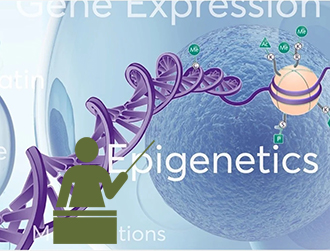The course is a supplement of the course on Special Issues in Genetics.
The course aims to introduce students to concepts, molecular mechanisms and methodologies of epigenetic theory & analysis for the interpretation of the phenotypic variability of animals, humans and other organisms.
The aim of the course is to help students to understand phenomena of epigenetic interpretation and to differentiate them from the concepts of classical genetics, but also to recognize the cooperation of epigenetic mechanisms with classical genetics.
More importantly, emphasis will be placed on understanding the nature of genetic and epigenetic (genetic x environmental) interactions, health and disease, and their possible pharmacological modulation. The latter is a major challenge in many areas of research and can help develop preventive strategies, drug design or new disease treatments. Finally, it will include the introduction of new elements & basic principles/concepts in methods of analysis with interest on epigenetics.

